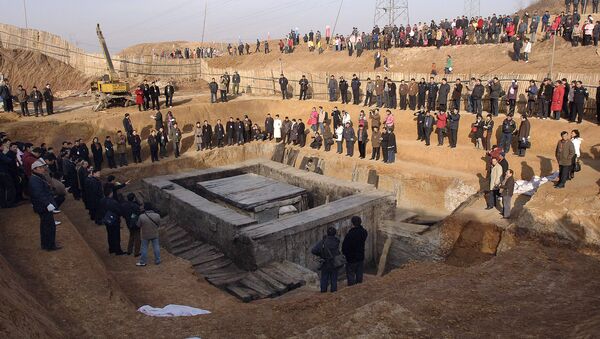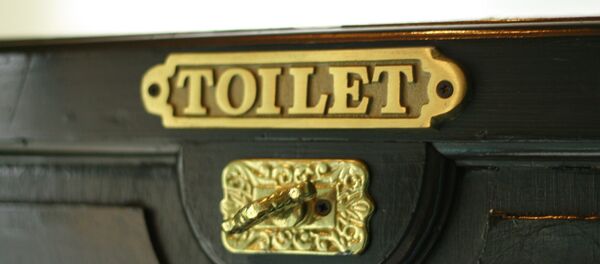"The new finds include 20 thin plates about 22 centimeters long and 10 centimeters wide," and gold coins weighing around 250g each, reported Xinhua.
The coins were discovered in the tomb of a nobleman, Liu He, who is thought to have received the title 'Haihunhou,' or 'Marquis of Haihun,' after he was deposed as emperor after just 27 days. Haihun is the ancient name of a very small kingdom in the north of Jiangxi province, in southeast China.
Most ever gold cakes unearthed in the Han Dynasty (206 B.C.-220 A.D.) tombs found in #Haihunhou tomb pic.twitter.com/GsDToacd8n
— China Xinhua News (@XHNews) 25 декабря 2015
Rare gold plates found in Haihunhou tomb, first ever discovered in Western Han Dynasty (206 BC — 8 AD) tombs pic.twitter.com/REWHU1i3j8
— China Xinhua News (@XHNews) 24 декабря 2015
Liu He was the grandson of Emperor Wu, the seventh emperor of China's Han Dynasty, and his tomb is thought to date back to between 206 BC and 24 AD, during the Western Han Dynasty.
Excavation of the tomb began in 2011, and has also yielded ornaments made of amber and jade, and bronze lamps, as well as ancient musical instruments and sacrificial chariots.



